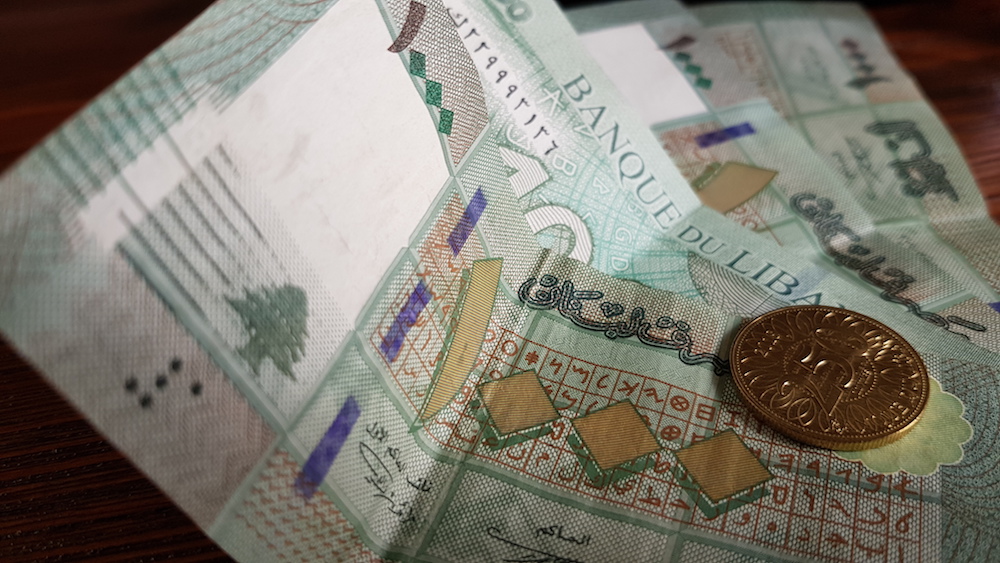What role should tech startups play to save their economy? (Image via LebNet)
Lebanon ranked as one of the least competitive economies, both globally and regionally, according to World Bank’s Lebanon Economic Monitor, Fall 2018: De-Risking Lebanon.
The country was ranked 105th of 137 countries, ahead of only Yemen in the Arab region. The leading causes of Lebanon’s competitiveness have been its macro-economic environment, a weak infrastructure and institutions and governance.
That being said, the country’s economy failed to create new job opportunities and reduce widespread poverty and its GDP has been decreasing sharply since 2010. Its main drivers were the service sector (72.4 percent) between 2004 and 2016, industry and agriculture (14 and 4.3 percent respectively).
The report also highlighted that corruption in the ruling political class has rendered the country incapable of solving its most urgent needs and public services.
Could the private sector, startups and IT more specifically, bypass corruption and create new hope for Lebanon?
Yes it could. The tech startup ecosystem in Lebanon has made access to innovation and competition easier, according to the same report, and it’s helping small businesses create jobs for the future generations.
“Lebanon’s tech scene is becoming increasingly attractive driven by the example of successful startups that have tapped regional and global markets and the innovative initiative by the country’s central bank in facilitating venture capital financing. The nation now needs to leverage these developments by finding solutions to constraints hindering the blossoming of its tech startup ecosystem,” the report stated.

Lebanese startup BuildInk, which 3D prints eco-friendly cement blocks, is posing for a group photo after winning TechCrunch Startup Battlefield MENA held in Beirut in October. (Image via LebNet)
Tech and digital businesses have borderless characteristics and can generate profits by selling to outside parties, without the need to get stuck in bureaucracy, customs and taxes. Such businesses are bringing hope to an economy filled with corruption, said George Akiki, LebNet’s president and cofounder, during a talk he gave in Armenia about the LebNet experience in scaling startups globally.
In his talk, he highlighted some of the constraints that the report hinted at and these include the shortage of high-risk investments and lack of advanced research and development centers.
Attracting seed funds at the earliest stage of a startup was also a crucial need. “Nobody is focusing there, very few,” he said. “Execution is a problem, CEOs and CTOs have good ideas but they are not executing well. LebNet needs to help address and mentor them. They need coaching at many levels.”
Where are the Lebanese unicorns?
If you’re familiar with the startup ecosystem in the MENA region, then you know that only a few were able to exit, most recently Souq.com, which was acquired by Amazon for $580 million.
Looking closely at the Lebanese market, no considerable exits have been made, despite the fact that it has become an obsession for many Lebanese entrepreneurs, according to Akiki. He stated that they are obsessing too much about unicorns to the point they can no longer focus on smaller and more realistic exits.
Despite the challenges, there are positive elements that will help the ecosystem grow slowly but surely.
The creativity, talent and the good number of VCs and support organizations are a sign of hope. The Lebanese ecosystem boasts around 200-300 startups, two angel networks, around 10 VCs, three incubators and five accelerators, two small exits and about US $300 million of deployed investments, he said. Most of all, Lebanese entrepreneurs have good business acumen, strong problem solving skills, a multicultural background and fluency in three languages (English, Arabic and French) which opens more opportunities for them when considering scaling to the US, Europe or the Gulf.
Can the digital sector bring Lebanon’s economy to safer lands when its GDP still highly relies on services and real estate? Can this sector bypass corrupted governance and make a difference? Maybe time will tell.
